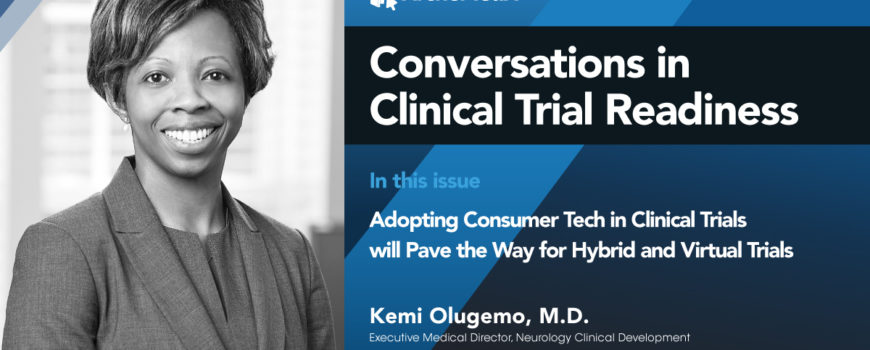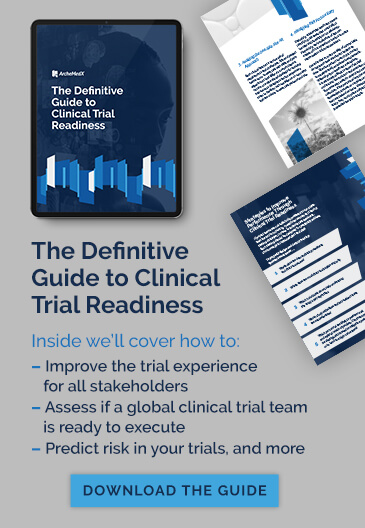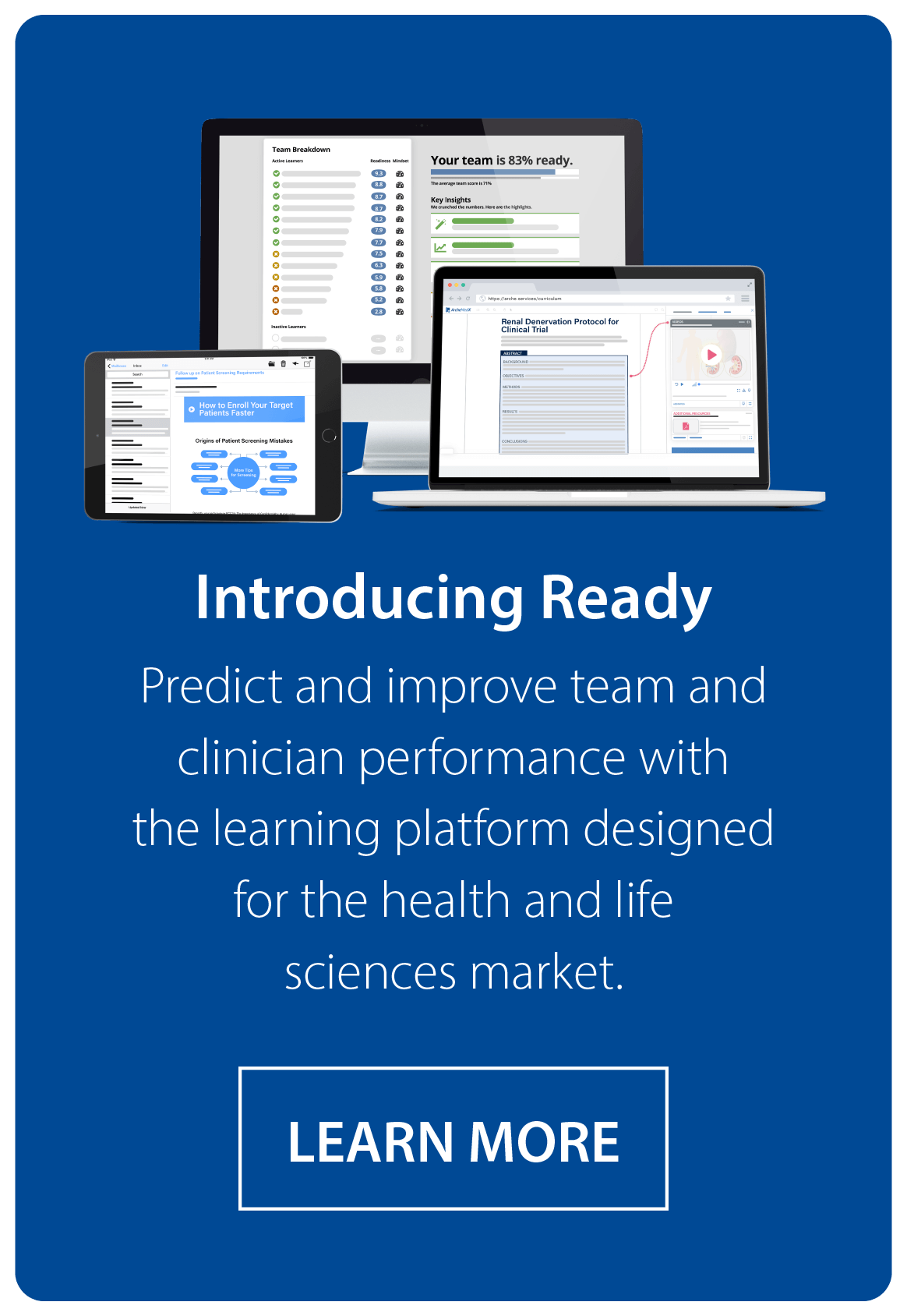
We recently spoke with Kemi Olugemo, M.D., Executive Medical Director, Neurology Clinical Development at Akcea Therapeutics. Akcea is a development and commercialization company focused on helping patients with serious diseases. The company is based in Boston, MA. Here are some of the most interesting excerpts from our discussion:
ArcheMedX:
You’re a neurologist by background, and spent a number of years in patient care. How did your journey bring you to research?
Olugemo:
During my neurology residency training, I developed a keen interest in Multiple Sclerosis (MS) and its treatment evolution. This led me to subspecialty training in neuroimmunology and MS.
I was lucky to have exposure to several clinical trials as an MS Fellow. At that time, MS therapies consisted of mostly injecticable options. These options at that time represented a significant improvement in quality of life for MS patients. Over the ensuing years, I could see that the treatment landscape was really evolving, and I found it incredibly exciting.
Although I spent the initial 4 years of my career focused in large part on clinical care, the opportunity arose to return to clinical research at an early phase unit, so I jumped at it! Since then, I’ve held roles in all phases of drug development and worn many hats.
Today, my interests lie in neurodegenerative, neuromuscular, and immune-mediated research, and particularly in rare diseases. On average, a patient with a rare disease visits about seven specialists before they get a correct diagnosis, and that can take up to 5-8 years. So you can imagine the impact on quality of life for a patient who has waited for years, to finally gain a diagnosis for their condition and then a treatment.
ArcheMedX:
You’ve been quite a proponent of technology adoption in clinical research and operations. Certainly COVID-19 has accelerated that adoption and the hope for virtual trials. What unique challenges do you see for technology in your particular field?
Olugemo:
COVID has unearthed that the clinical research field is woefully unprepared for virtual or even hybrid clinical trials. We now realize that this is a critical need. Sponsor companies have had to adapt to social distancing measures. We will have to become more efficient in clinical trials using the technologies we have.
Rare disease populations have a very high unmet need. There are unique challenges for sponsors who begin trials in these populations, and it’s a perfect example of an area where technology adoption can have a major impact.
I’ve written before about the value of technologies that are pervasive today, such as wearable devices. Watches and wristbands have been used to a large extent as monitoring devices by consumers – but they also expand the options for measuring endpoints in trials studying a condition like Parkinson’s or MS. These and other types of wearable devices can be used in a diagnostic or biomarker capacity, including assessments of walking speed, seizure detection, or perspiration.
The fact that the diseases are rare means the patient population is small, and you need to be able to find, recruit, and retain these patients – and know how to replicate those studies. Wearable devices with carefully validated endpoints can increase study power, ultimately requiring fewer participants and accelerating study conduct.
ArcheMedX:
What technology have you been keeping up with?
Olugemo:
Outside of what COVID has accelerated, I’m also keeping an eye on technologies like nerve implants, and robotic exoskeletons to treat spinal cord injury. I truly think that the wave of the future will be marrying technology with biology and genetics, in addition to all the other intelligence and resources we have, in order to cure disease.
Precision medicine is a major emerging area. The study of genetic diseases has really been picking up steam. Previously, we couldn’t have targeted diseases like spinomuscular atrophy. Now we’re able to create therapies to target the genome or RNA with sustained delivery. That’s really been the biggest area of breakthrough that I’ve seen in my therapeutic area of research.

ArcheMedX:
So do you see the age of the virtual trial as attainable?
Olugemo:
Absolutely. I see a future in which every single trial is hybrid, with the majority in a virtual capacity. The current model is not sustainable. As far as technologies, I’ve already mentioned wearables and sensors; I’m also particularly interested in digital therapeutics in CNS.
ArcheMedX:
With any sort of change or innovation, there’s bound to be pushback or obstacles to adopting these sorts of technologies, regardless of their value or utility. What challenges do you see?
Olugemo:
People in general are resistant to change, and they look for the path of least resistance. Having a different mindset is critical. Perhaps one thing that COVID-19 will change within society is that mindset – and will force many in the life sciences to rethink their inertia.
Specifically with sensors and wearables that collect data, there’s always a great risk with privacy. It’s becoming more of an issue, and we’ve seen a number of data breaches in the industry. That can’t continue. As we continue to increase the ability to amass data from sensors and wearable devices, like fingerprints, genetic profiles, photos – we must get a handle on data management and privacy controls.
ArcheMedX:
With all of this change, it’s critical for the entire lifecycle of therapy development to become more efficient. So how can clinical development and clinical operations improve how they work together?
Olugemo:
There needs to be a lot more collaboration in all of the functional areas and stages in the product’s lifecycle from the beginning. We need to really have the goal of delivering a safe, valuable and effective treatment to patients at the beginning.
Previously, we separated many clinical trial activities and worked in silos. In designing a clinical program and creating a target product profile, all considerations should be at the forefront – have we identified symptoms that are relevant to patients?, does the treatment improve on existing standard of care or address an unmet need? Is the study designed in an efficient way that fosters patient participation and retention? We have to move beyond the narrow-minded thinking that simply drives one to get a statistically significant result solely for regulatory approval.
ArcheMedX:
So what other advice do you have for clinical operations professionals for the next 3-6 months as we either emerge from COVID or experience a second wave?
Olugemo:
Certainly, the unique circumstances brought on by COVID-19 should place a priority on clear and precise documentation. There could be very few site visits and there could be many patients who have experienced COVID-19 or will be impacted by it, so I’d expect many protocol deviations, especially if you don’t amend your protocol. Trial teams must make sure adverse events and protocol deviations related to COVID-19 are clearly documented, so that data is interpretable.
More than anything, though, I’d urge the industry to be ready and willing to accept the new normal. We have to adopt the technologies that we already have but are underusing if we want to succeed with virtual trials. E-consent, remote monitoring, telemedicine, wearables, all of these things are available now and will be key to ensure you can perform your trial outside of a traditional study site.
ArcheMedX:
Kemi emphasizes the need for broader and more efficient technology adoption in clinical research. More widespread use of the technologies we already have available is critical if we hope to propel life sciences forward to be able to support hybrid or full virtual trials. Whether the technology is wearable devices, sensors, or digital content delivery like we provide with Ready, sponsors and CROs may well survive or succumb based on their appetite for technology use.





